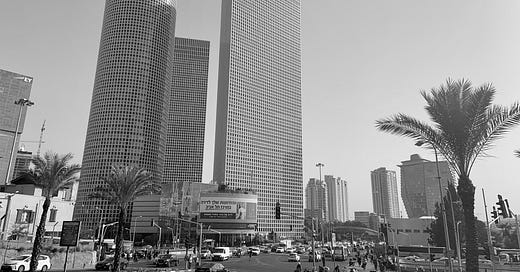Musk and Twitter
No, I can’t ignore it. You do not even have to be active on the platform to have noticed how the world has exploded over literally anything going on at Twitter since last Friday. There are two key areas to focus on, however.
One the one hand there is of course the ‘unfettered free speech’ vs. ‘content moderation’ issue. Since the handover there was some crazy stuff happening, no doubt, but most likely most it was attributable to those just wanting to ‘test’ Elon a bit. There is nothing to indicate that all of sudden a cesspool of hate has emerged: it is a safe bet that new management is still figuring it all out. Therefore the threats to leave the platform and pull ads is as hollow as the threat of American celebrities moving to Canada following Trump’s election: only a few actually will go. The benefit to stay has real and often economic value, the deserters are probably too small a group to move the needle. Twitter has a global role to play and will continue to attract eyeballs. It is an indispensable tool for a world in conflict. But: I do not hear as much noise about Musk having a Saudi shareholder base in this venture, nor do I see a debate around Tesla’s ability to keep pushing cars in mainland China if the mood on Twitter becomes hostile to Beijing’s leadership. If there is ever a threat that content moderation will be at risk it is right there. Musk has proven that he is quite open to take calls from dictators, recall his recent dalliance with Putin.
The real issue is the economic one, Musk’s greatest challenge. Twitter’s has never been a financial success other than for those who worked there and those who actively traded the stock. For long term investors it was not an experience to really write home about. Given how leveraged the deal is, Musk has to start driving revenue from Twitter and come up with a model that eluded previous management. At the same time we have entered an era where ad revenues have come under pressure, so what does a creative entrepreneur do here? They start throwing new revenue generating ideas around, very rapidly. So over the weekend the plan was aired to have the verified blue checkmark accounts start paying a $20 per month subscription fee. Others jumped on it and launched the idea to link the dollar subscription amount to actual number of followers (the more you have, the more you pay) which could for instance result in a big monthly bill for someone like Kim Kardashian. Anyway, outrage ensued (again) but the double edged sword of new revenue and account verification that could well move beyond the current 400k blue checkmarks definitely has merit. Twitter is a sort of big advertising space and you get to buy a piece of it. Expect more ideas to follow: monetizing sports, finance and entertainment.
So, more of this in the weeks to come, but try and ignore the mob hysteria and focus on the real issues behind what is going on: money (Twitter needs lots of it) and political influence (Twitter needs less of it).
Bibi
Although I did not predict it outright, I did hint at it: Benjamin Netanyahu is not going away any time soon and yesterday he pretty much won the Israeli elections. If he wasn’t already, he will now be Israel’s most consequential statesman ever (together with David Ben-Gurion who as the founder will never be displaced). The coalition he will build can govern for the four full years and will move rightwards and be decisively nationalistic. The why is simple. The Middle East is not Europe, Israel is not a late stage liberal democracy. It is an open, modern, yet quite traditional nation situated in an unstable region. A majority of people will go with what is best for the tribe. Safety, stability and a strong defence. Like it or not, Bibi’s pitch was once more on point.
Sunak
It was a good first week for Rishi Sunak, but it probably was not that hard to right the ship after the chaotic Liz Truss interregnum and the final stages of the Boris Johnson era. A fresh start so to speak. I did not spent a lot of time on Sunak’s immigrant and Hindu roots and the uniqueness of that. Andrew Sullivan took it on and in an excellent piece summarizes how western democracies actually offer direct routes for immigrants to advance and succeed. Open and dynamic societies often do not need diversity programs to accomplish that and Rishi Sunak is living proof. Later this week I will have a Dutch immigrant political success story (with a not so good ending) as it has some instructive lessons for all democracies. Stay tuned.




Thanks Pieter for the quick update on world news. I've just canceled my subscription to The Economist and look forward to your next edition.